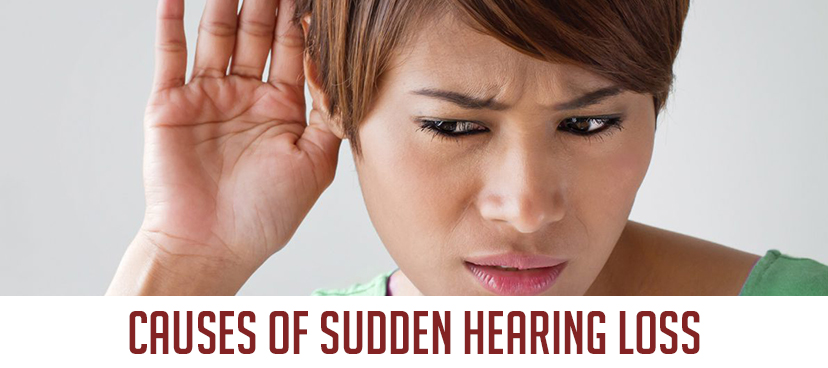Hearing is one of the three essential, natural given qualities that we have as human beings. It is as important as it gets and any issues, signs, or symptoms related to it should be handled by a doctor immediately.
If a longer period of time has passed with hearing symptoms, this may result in a condition treated only by hearing aids and we should try to avoid that.
If there is a sudden hearing loss in one ear, we may have sensorineural hearing loss – affecting the inner ear, it could be appearing suddenly or developing in a few hours.
There are still medical researches going on to determine what might be the cause of that, but if you experience any symptoms to such a condition -seeing your doctor is a must.
Sudden Hearing Loss
The medical explanation behind Sudden Hearing Loss (SHL) informs us that if our hearing reduction is greater than 30 dB, has occurred within 72 hours, and is tested with at least three different contiguous frequencies, we are experiencing SHL.
Usually, this condition occurs on one of the ears but it could be on both as well. Sometimes it appears strongly in the morning, while other patients have reported that it was developing during the whole day – the severeness of SHL depends on person to person and it could affect men and women in equal proportions.
“The good news is that less than 0.3% of Earth’s population is affected by this condition per year.”
Causes and symptoms of Sudden Hearing Loss
Looking for possible causes for our hearing issues is not as easy as it sounds. Even with modern medicine, researches show plenty of variation and different possibilities why you could have experienced that condition but we are not up to date as we should be.
The different causes might be some of the following (but not limited) to:
The most common symptoms that alert us could be – the absence of an earache, hearing loss in one ear, especially if there is no obvious cause.
These might lead to dizziness, ear pressure, and even tinnitus. Studies show that if a patient is diagnosed with sensorineural loss it may lead to cardiovascular problems as well.
This is one of the many reasons why you should have your ENT take a look as soon as possible. Your ENT can use a hearing test (or microscopy) to make sure if you have a sudden hearing loss or any other condition.
“By using such a test, the doctor can determine if your hearing loss is high-, mid- or low-frequency.”
Treatment of Sudden Hearing Loss
By being optimists we will find out that if you have experienced a mild form of sudden hearing loss, the chances of spontaneous recovery (especially in the first two weeks) are above average (up to 79% chance).
If your condition was more serious and severe, the chances of full recovery drop dramatically and it would help if you are younger – the older the patient is, the less chance he or she has to fully recover. There are quite a few options on how you can be treated – determined and examined by your doctor.
“If the case is milder, you can be treated with hearing aids and if you need more help, cochlear implants would be there to support you.”
Because of the fact that medical researches are not providing a definite answer to what may be causing the sudden hearing loss, some treatments are quite controversial and experimental and you should be careful.
“Vasodilators, antiviral medications, systemic steroids – only part of the methods used to attempt treating the condition.”
The no-treatment solution has occurred naturally after so many patients recovering fully in just a few weeks after the sudden hearing loss appeared.
The possibility of rehabilitation is on the table as well. The most common complaints from patients could be heard when one is explaining how he or she cannot hear properly from their deaf side.
Different people experience different causes and symptoms and if the no treatment option is not working, hearing aids and even implants are not helping as expected, then rehabilitation might be the only answer.
These more severe cases and conditions used to be treated in very controversial manners even with the rehabilitation, but most modern types of these treatments deliver a better result even in the beginning stages.
Summary
Experiencing a sudden hearing loss in our or both ears could be dramatic at first but we should not lose hope as modern medicine keeps improving and finding groundbreaking solutions to our problems.
In most cases, our SHL can be treated by itself but even if we have a more severe condition, hearing aids and implants will be available to use – make sure to go to your ENT if you have any of the symptoms above.



